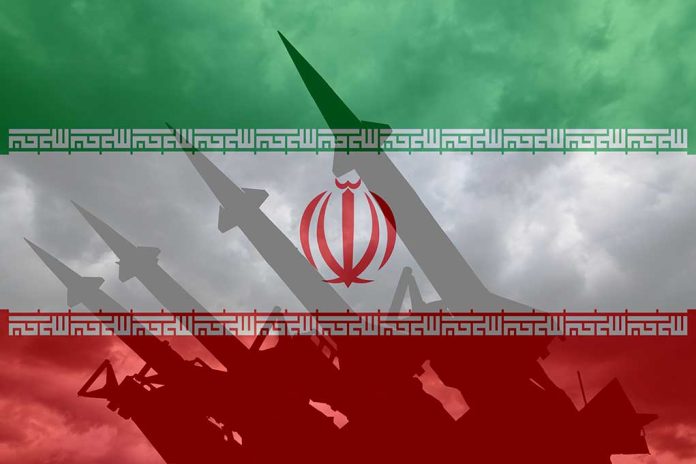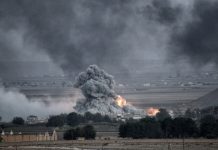
Vice President Kamala Harris’ leadership falters as Iran launches a brazen missile attack on Israel, leaving conservatives questioning her ability to handle international crises.
At a Glance
- Iran launched approximately 200 ballistic missiles at Israel, testing U.S. leadership
- VP Harris condemned the attack but faced criticism for her scripted remarks and uneasy demeanor
- Former President Trump claims Iran was “in total check” during his administration
- Conservatives question Harris’ crisis management capabilities and preparedness
- Recent polls show Trump more trusted than Harris on world affairs and national defense
Harris’ Lukewarm Response to Iranian Aggression
As Iran launched a barrage of missiles towards Israel, Vice President Kamala Harris found herself thrust into the spotlight, tasked with addressing the nation on this critical international incident. Her performance, however, left much to be desired, especially for conservative voters expecting a strong and decisive response from their leaders during times of crisis.
Harris’ scripted remarks and visibly uneasy demeanor failed to instill confidence in her ability to navigate complex geopolitical challenges. While she did condemn the attack, her delivery lacked the gravitas and conviction expected from a potential commander-in-chief, raising serious concerns about her readiness to lead in high-stakes situations.
While her words may have been appropriate, the delivery left much to be desired, especially when compared to the more forceful and direct communication style of her predecessors.
Trump’s Critique and Conservative Backlash
Former President Donald Trump wasted no time in pointing out the stark contrast between his administration’s handling of Iran and the current leadership’s apparent weakness. Trump’s assertive stance resonated with many conservatives who yearn for a return to a more robust foreign policy.
Trump’s criticism strikes a chord with conservative voters who believe that the current administration’s perceived weakness has emboldened adversaries like Iran. The former president’s claim that “Iran was in total check” during his tenure provides a stark contrast to the current situation, where the Islamic Republic feels confident enough to launch a direct attack on a U.S. ally.
Questions of Preparedness and Leadership
Harris’ performance during this crisis has reignited debates over her preparedness for high office. Conservative analysts point out that her lack of clear messaging on complex issues, such as the Israel-Palestine conflict, has left many voters frustrated and questioning her ability to navigate international relations effectively.
Recent polls indicating that Trump is more trusted than Harris on world affairs and national defense issues further underscore the Vice President’s perceived weakness in this crucial area. As potential crises loom, from the ongoing Russia-Ukraine conflict to tensions in the Middle East, conservatives are increasingly concerned about Harris’ ability to project strength and protect American interests abroad.
The Path Forward
As the situation in the Middle East remains volatile, the Biden-Harris administration faces mounting pressure to demonstrate strong leadership and decisive action. Secretary of Defense Lloyd J. Austin III’s communication with Israeli Defense Minister Yoav Gallant, affirming U.S. support and increased force readiness, is a step in the right direction. However, for many conservatives, it’s too little, too late.
The Iranian missile attack on Israel serves as a stark reminder of the importance of strong, capable leadership in times of international crisis. As the 2024 election approaches, conservative voters will undoubtedly weigh heavily on candidates’ ability to project strength, protect American interests, and maintain global stability. For Vice President Harris, this recent performance may have significantly damaged her credibility on the world stage, leaving many to question whether she has what it takes to lead the nation through turbulent times.






















